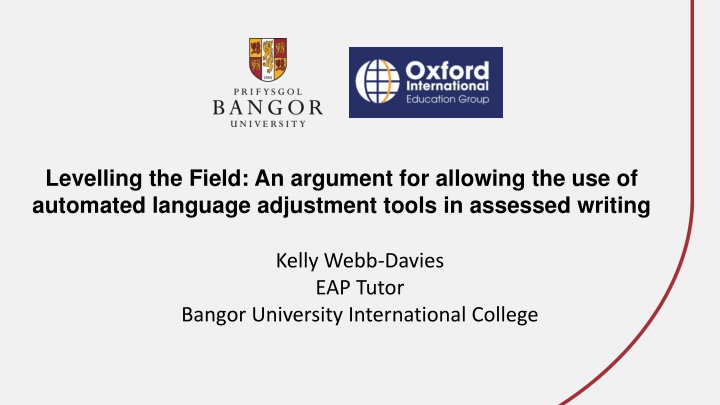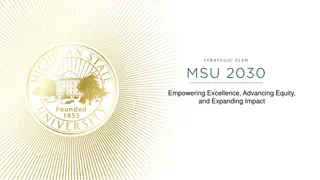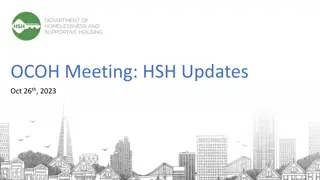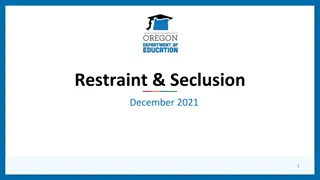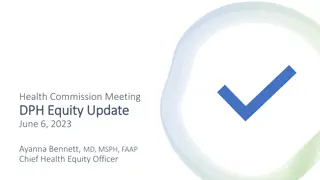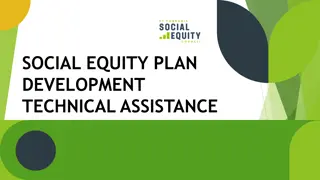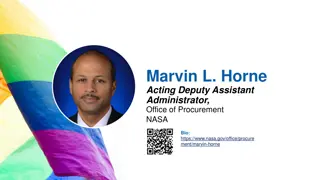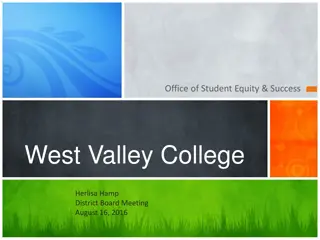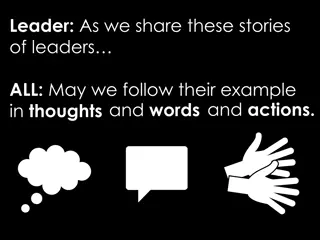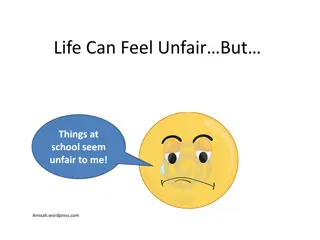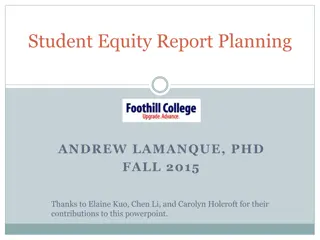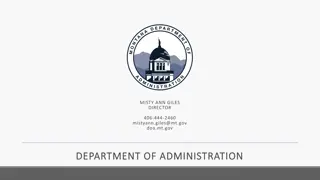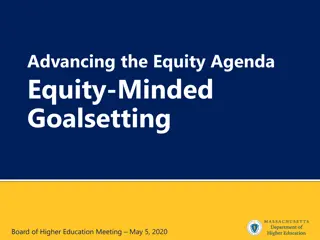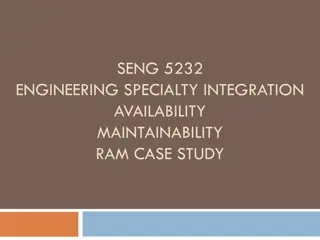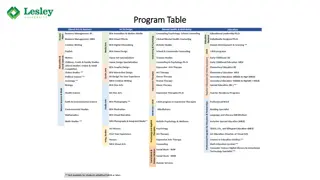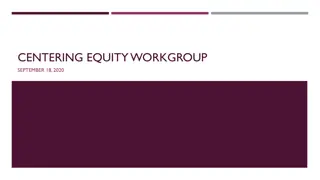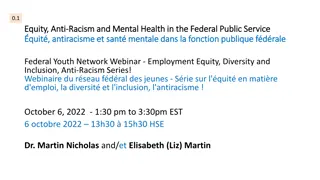Inherent Unfairness in Academic English: A Call for Equity
Discrimination and bias in Academic English pose significant challenges for writers, highlighting the need for equity and inclusion in language standards. The growing availability of Automated Language Adjustment Tools (ALATs) presents a solution to combat linguistic discrimination and promote fairness in academia. This article explores the implications of linguistic hegemony, internalized oppression, and the importance of embracing language diversity in educational settings.
Uploaded on Mar 06, 2025 | 6 Views
Download Presentation

Please find below an Image/Link to download the presentation.
The content on the website is provided AS IS for your information and personal use only. It may not be sold, licensed, or shared on other websites without obtaining consent from the author.If you encounter any issues during the download, it is possible that the publisher has removed the file from their server.
You are allowed to download the files provided on this website for personal or commercial use, subject to the condition that they are used lawfully. All files are the property of their respective owners.
The content on the website is provided AS IS for your information and personal use only. It may not be sold, licensed, or shared on other websites without obtaining consent from the author.
E N D
Presentation Transcript
Levelling the Field: An argument for allowing the use of automated language adjustment tools in assessed writing Kelly Webb-Davies EAP Tutor Bangor University International College
Contents Contents The problem Academic English The solution Automated Language Adjustment Tools (ALATs) Integration into a module Results Suggestions
Introduction Introduction Use of ALATs traditionally banned in L2 education Proof of language proficiency only from the brain ALATs are now widely available and easily accessible Justification for their usage by L2 writers from a social justice perspective
English as an Academic Lingua Franca English as an Academic Lingua Franca EAP exists due to dominance of AE as a lingua franca of knowledge AE is a lingua franca due to colonialism Degree from an English-medium institution = prestige & power HEIs profit from international student fees Adherence to AE standards is essential (Madowo 2023)
What is Academic English? What is Academic English? Clear? Concise? Descriptive? Complex? Formulaic? Performative? Whose English is it? Is it even necessary?
Linguistic representation in Academic English Linguistic representation in Academic English See, people be mo pluralingual than we wanna recognize. What we need to do is enlarge our perspective about what good writin is and how good writin can look at work, at home, and at school. The narrow, prescriptive lens be messin writers and readers all the way up, cuz we all been taught to respect the dominant way to write, even if we dont, cant, or wont ever write that one way ourselves. That be hegemony. Internalized oppression. Linguistic self-hate. But we should be mo flexible, mo acceptin of language diversity, language expansion, and creative language usage from ourselves and from others both in formal and informal settings. Why? Cuz nobody can or gone really master all the rules of any language or dialect. So, what happen when peeps dont meet the dominant language rules? Well, some folks can get away with not meeting those rules while others get punished, sometimes severely, for not doing so. (Young 2010, p. 112)
Linguistic discrimination and Inherent Unfairness in Academia Linguistic discrimination and Inherent Unfairness in Academia Undervalued varieties of English are not accepted in academic writing = social prejudice (Young & Barrett 2018), exclusion (Garc a & Solorza 2021) and lack of representation Linguistic gatekeeping - IELTS biased against unstandardised varieties of English (Michell 2021) Racialised speakers viewed as deficient, even when adhering to standard language (Flores & Rosa 2015; Flores 2020; Gerald 2022) Exclusionary psychological paywall = increase of sociolinguistic labour and cognitive load (Figueroa 2022) The more different L1 is from AE, the less accessible academia becomes Further privileges already privileged groups
Student use of Machine Translation Student use of Machine Translation MT widely used by international students (de Vries & Groves n.d.; Clifford, Merschel & Munn 2013) Students approach and use MT critically, strategically, and thoughtfully (Zhou, Zhao & Groves 2022) Increases students quality of writing and aids learning, but requires tutor guidance (Lee 2020) Use of L1 pragmatic translanguaging (Tsai 2022) Integrated into common writing platforms (Groves & Mundt 2023) Allow the use of MT with clear guidelines to reduce shame of practice that already takes place (Bond 2020)
Knowledge is best served when we open it up to multimodal and multilingual representations. (French & Molinari 2023, 00:08:03-00:08:08) Use of ALATs to increase fairness Use of ALATs to increase fairness Academic English is: Exclusionary gatekeeping Unnecessary Language of the already-privileged Allowing EAP students to use ALATs: Makes it possible for them to initially express their ideas and arguments in unstandardised or emergent English or their L1 translanguaging and digital bilingualism (Zhou, Zhao & Groves 2022) Facilitates authentic writing processes and independent learning by letting them use all tools at their disposal Reduces the cognitive load and sociolinguistic labour they must perform Removes double standard of L1 English writers being allowed to use ALATs without suspicion However, digital reinforcement of AE dominance potentially a serious issue affecting linguistic representation Digitally whitening accents in call centres using AI (Dodgson & Han 2022)
Implementation in a module Implementation in a module Class description Pre-masters EAP course 5 hours contact time a week, for 9 weeks South Asian and Nigerian students Four groups, two tutors Summative assessment 1000-word essay Issues to address Be sure the work is the students own ideas Adherence to University and College guidance A guiding principle is that text submitted for assessment should not have originated from AI technology. I have not used ChatGPT, or other AI Chatbot technologies to write this assignment.
if students are demonstrating their understanding and argumentation, there is little reason to to insist they use flawed language skills to present this, if there is a clear and effective alternative. (Groves & Mundt 2021, p. 8) Approach Approach Integrate ALATs into classes Full ALAT integration in class only in 2/4 groups Students learn skills, then use ALATs and evaluate output E.g. Paraphrasing lesson learn skills, evaluate, then use Quillbot and evaluate results compared to students own work Submit outline and do verbal defense Integrate topic throughout term via collaborative essay topic The use of AI writers is a controversial topic in EAP
ChatGPT ChatGPT lesson lesson Three tests using ChatGPT to write an essay Inputting essay question only Inputting essay outline + asking for citations Inputting paragraph written in simple English and prompting ChatGPT to rewrite it in AE AI writers are not always accurate. They can state incorrect facts confidently and make many other mistakes. Some have even called it error prone (Donastorg 2023). AI writing tools are not infallible and are susceptible to inaccuracies. They can confidently present incorrect facts and exhibit a propensity for various types of errors. Scholars have even characterized these tools as error-prone (Donastorg, 2023). Students evaluate the output Pre- and post-class survey
Before class n = 32 After class n = 29 Strongly agree Agree Neither agree nor disagree Disagree Strongly disagree
Guidance for Guidance for ChatGPT ChatGPT usage usage Using it to write for you = NOT okay Using it to correct/adjust writing you have created yourself = okay Additional rule of thumb: treat it like a tutor
Results Results Most submitted essays indistinguishable from L1 students in terms of language use Content and structure matched expected level of individual students 2/45 serious unfair practice cases in groups with ALAT integration 21/45 serious unfair practice in groups without ALAT integration
Did you use generative AI (such as ChatGPT) to write text for you, or only to correct writing you had already created yourself?
Suggestions Suggestions By privileging surface-level correctness and allowing that to stand in for writing proficiency, we ve denied a generation (or two) of students the chance to develop their writing and critical thinking skills. (Warner 2022) Fully integrate ALATs into writing (and reading) as authentic text creation processes Incentivise students to use ALATs productively (facilitative rather than substitutive (Groves & Mundt 2023)) by instructing students in their use Change of subskill focus i.e. evaluation of text, proofreading, recognition rather than pure written production Students must show working of text creation process Use caution when identifying academic misconduct by comparing in-class language level to submitted assignments Trust students to use ALATs instead of viewing all high-level language use with suspicion Institutional agreement on ALAT use essential
Conclusion Conclusion An antiracist and anticolonial language pedagogy is possible when we critically reflect on our practices and when we take decisive action toward our collective effort of advancing equitable language education. (Maamuujav & Hardacre, 2022, p. 10) Not only is it preferable to let students use ALATs for writing in terms of practicality and to reflect authentic writing practices, it is also the ethical thing to do from a social justice standpoint we can begin to break down barriers that are a direct result of colonisation, racism, and linguistic discrimination. We can do something to level the field.
References References Bond, B., 2020. Making language visible in the university: English for academic purposes and internationalisation (Vol. 82). Multilingual Matters. Clifford, J., Merschel, L. and Munn , J., 2013. Surveying the landscape: What is the role of machine translation in language learning?. @ tic. revista d'innovaci educativa, (10), pp.108-121. de Vries, R.F. and Groves, J. (no date) International students use of online translation tools, Garnet Education. Available at: https://www.garneteducation.com/international-students-use-of-online-translation-tools/ (Accessed: 24 June 2023). Dodgson, L. and Han, Y. 2022 An AI startup is selling Tech to let call center agents change their accents. they say it s to protect workers from racism, but critics say it s a form of digital whitening. , Insider. Available at: https://www.insider.com/ai-startup-sanas-accent- translation-technology-call-center-racism-2022-9 (Accessed: 24 June 2023). Donastorg, M. 2023. Potentially useful, but error-prone: Chatgpt on the Black Tech Ecosystem, The Plug. Available at: https://tpinsights.com/potentially-useful-but-error-prone-chatgpt-on-the-black-tech-ecosystem/ (Accessed: 21 May 2023). Figueroa, M., 2022. Podcasting past the paywall: How diverse media allows more equitable participation in linguistic science. Annual Review of Applied Linguistics, pp.1-7. Flores, N., 2020. From academic language to language architecture: Challenging raciolinguistic ideologies in research and practice. Theory into Practice, 59(1), pp.22-31. Flores, N. and Rosa, J., 2015. Undoing appropriateness: Raciolinguistic ideologies and language diversity in education. Harvard educational review, 85(2), pp.149-171. French, A. and Molinari, J. (2023) Troubling academic writing in the academy: a conversation about more than writing, BALEAP. Available at: https://www.youtube.com/watch?v=9_rEKNPolDY (Accessed: 25 May 2023). Garc a, O. and Solorza, C.R., 2021. Academic language and the minoritization of US bilingual Latinx students. Language and Education, 35(6), pp.505-521.
References References Gerald, J.P.B., 2022. Antisocial Language Teaching: English and the Pervasive Pathology of Whiteness (Vol. 110). Channel View Publications. Groves, M. and Mundt, K., 2021. A ghostwriter in the machine? Attitudes of academic staff towards machine translation use in internationalised Higher Education. Journal of English for Academic Purposes, 50, p.100957. Groves, M. & Mundt, K. 2023. A tool does not replace the craft: machine translation literacies for academic writing and some lessons for how we might address ChatGPT developments. IOE Academic Writing Seminar Series. [Accessed 11 May 2023] Available from: https://mediacentral.ucl.ac.uk/Play/94920 Maamuujav, U. and Hardacre, B., 2022. The politics and praxis of academic English: Toward antiracist language pedagogy. TESOL Journal, 13(3), p.e668. Madowo, L. 2023 First, they impose English on you. Then you pay them to test whether your English is good enough [Twitter] 23 June. [Accessed 23June 2023]. Available from: https://twitter.com/LarryMadowo/status/1672126814897020929?s=20 Michell, C., 2021. Critically Examining Perceptions of Different Englishes in the IELTS Speaking Section: Who Decides What is Acceptable?. Journal of World Englishes and Educational Practices, 3(4), pp.08-15. Tsai, S.C., 2022. Chinese students perceptions of using Google Translate as a translingual CALL tool in EFL writing. Computer assisted language learning, 35(5-6), pp.1250-1272. Warner, J. 2022. By privileging surface-level correctness and allowing that the stand in for writing proficiency, we ve denied a generation (or two) [Twitter] 3 December. [Accessed https://twitter.com/biblioracle/status/1599106026115956736 Young, V.A., 2010. Should writers use they own English?. Iowa Journal of Cultural Studies, 12(1). Young, V.A. and Barrett, R., 2018. Other people's English: Code-meshing, code-switching, and African American literacy. Parlor Press LLC. Zhou, S., Zhao, S. and Groves, M., 2022. Towards a digital bilingualism? Students use of machine translation in international higher education. Journal of English for Academic Purposes, 60, p.101193. 22 May 2023]. Available from:
